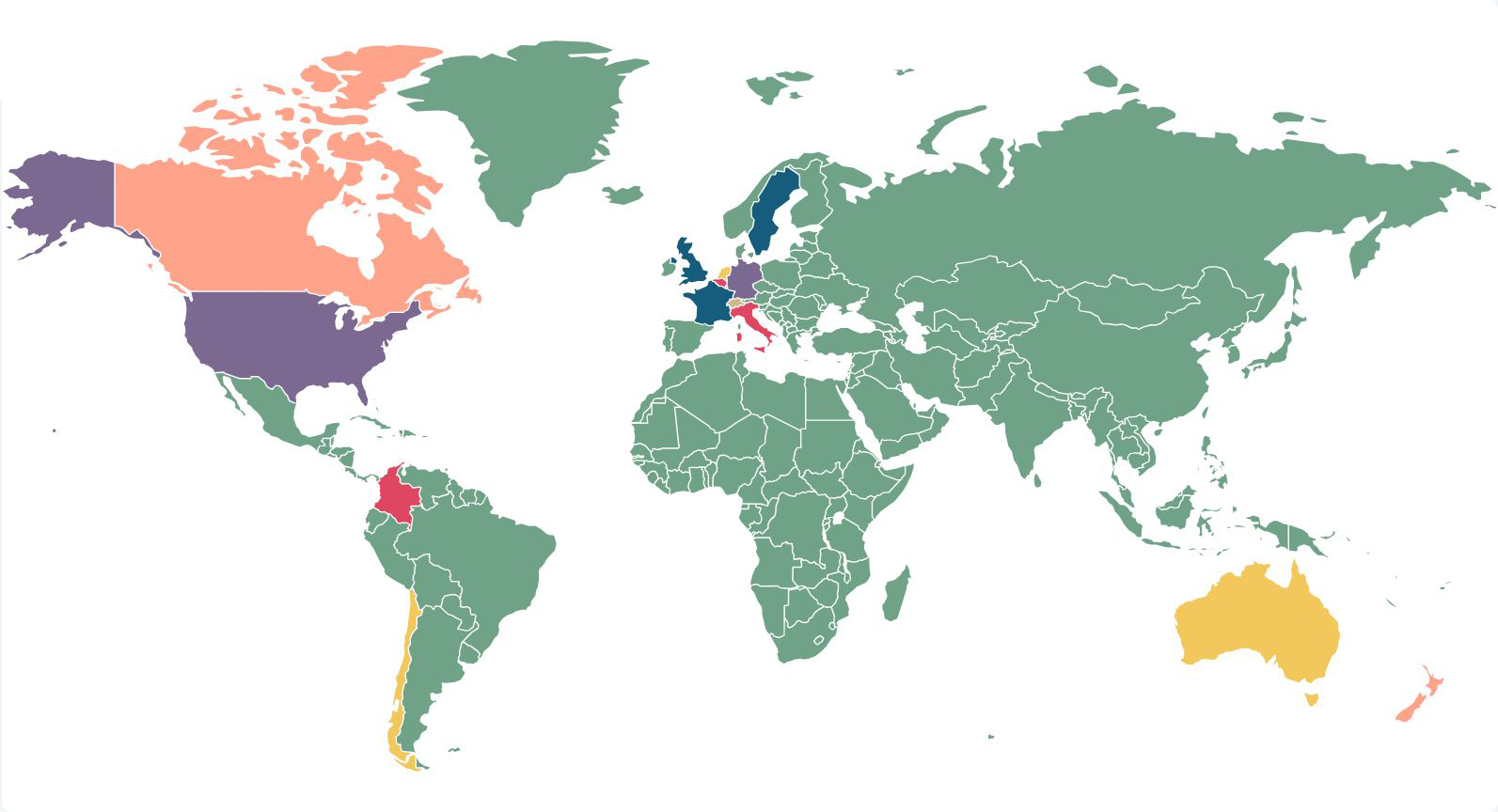A green light for Italian climate change litigation: Greenpeace and others v ENI

The Court of Cassation in Italy has handed down a judgment that will have wide-reaching implications for climate change litigation in Italy, after ruling on the procedural admissibility of a climate-related action brought Greenpeace, ReCommon and 12 Italian citizens.
Dismissing submissions by the fossil fuel company, ENI and two major shareholders, the Italian Ministry of Economy and Finance ("MEF") and Cassa Depositi e Prestiti S.p.A. ("CDP"), the Court of Cassation ("the Court") held that activist groups and private individuals are entitled to bring tort claims against companies in respect of climate-related issues. The underlying claim itself will now proceed before the Civil Court of Rome.
The judgment represents both a landmark decision in the Italian legal landscape, but also an important ruling on the issue of tortious liability in the broader trend of international climate change litigation.
Referring to the European Court of Human Rights decision in Verein KlimaSeniorinnen, the Court held that it had judicial oversight on matters relating to climate change such as compliance with international treaties such as the Paris Agreement. Importantly, the underlying claim was recognised as an action relating to the violation of fundamental rights, as opposed to a challenge of the constitutional role reserved to the executive and legislative bodies in environmental policymaking.
By comparison, the Federal Court of Australia recently concluded that the common law tort of negligence was 'an unsuitable legal vehicle' to bring a climate change claim, and that it was not capable of ruling on environmental issues resulting from matters of high or core government policy.
Although the underlying claim may not be successful, this decision can be bracketed with the New Zealand Supreme Court decision in Smith v Fonterra Co-operative Group Limited which also suggested that common law may have to evolve to address aspects of climate change.
More generally for the Italian legal system, the decision also provides critical guidance for several sectors, including insurance, by establishing the following key points:
- liability may extend not only to the legal entity directly involved in climate-harmful conduct, but also to its shareholders, and, to the State; and
- the possible emergence of a new category of liability borne by corporate executives of legal persons engaged in climate-negative practices.
We await with interest not only the outcome of the underlying claim brought by Greenpeace and others, but the prospect of further climate-related claims being brought in Italy.
Underlying claim, arguments and findings
Greenpeace, ReCommon and 12 Italian citizens issued an action in the Civil Court of Rome arguing that ENI and their major shareholders, the MEF and CDP, were failing to comply with their obligations to combat climate change.
The action sought a finding of non-compliance on the part of the three defendants in relation to ENI's decarbonisation strategy, redress for ongoing damage in the form of compensation, but also a number of future actions, namely that ENI be ordered to cut its CO2 emissions associated with its operations by 45% by 2030 (against its 2020 baseline) in line with the requirements of the Paris Agreement.
ENI, the MEF and CDP raised a number of procedural objections summarised as:
- the court's lack of absolute jurisdiction, in view of the constitutional role reserved to the State-legislator in environmental policymaking;
- the lack of jurisdiction of the ordinary court (the Civil Court in Rome), which, according to the respondents, should have been replaced by the administrative court; and
- the lack of jurisdiction of the Italian judiciary in circumstances where much of the alleged harm had a transnational dimension.
In response to these objections, the plaintiffs filed a request for stay in the Civil Court of Rome, allowing the submission of a petition to the Court of Cassation for a preliminary ruling on whether the ordinary court had jurisdiction. The Court found the petition itself was admissible on two grounds; firstly, there was reasonable doubt on the external limits of jurisdiction in complex cases of this kind, and secondly, the novelty of the legal issues which lacked precedent in the Court’s jurisprudence.
The Court held that Italian judicial authority had jurisdiction in the underlying case. It was a standard tort action for the infringement of the right to life and to private and family life, pursuant to the Italian Civil Code, based on ENI’s failure to reduce climate-altering emissions in violation of international obligations (including the Paris Agreement). The judge's task would be limited to verifying whether the law relied upon by the claimants impose a duty of conduct giving rise to tortious liability.
MEF and CDP were not being sued not in their public capacity, but as major shareholders of ENI, sharing responsibility for company strategies inconsistent with international climate goals.
Rejecting the argument that the transnational dimension of the damage limited the jurisdiction of the Italian courts, the Court held the underlying claim asserted concerns the controlling company (ENI), based in Italy, for group-wide strategies which stemmed from decisions taken by ENI’s corporate governing bodies in Italy.
The initial damage alleged materialised in the claimants’ place of residence (in Italy) and thus jurisdiction could be correctly established in Italy, both as the place of the event(s) giving rise to the damage and as the place where the damage occurred.














